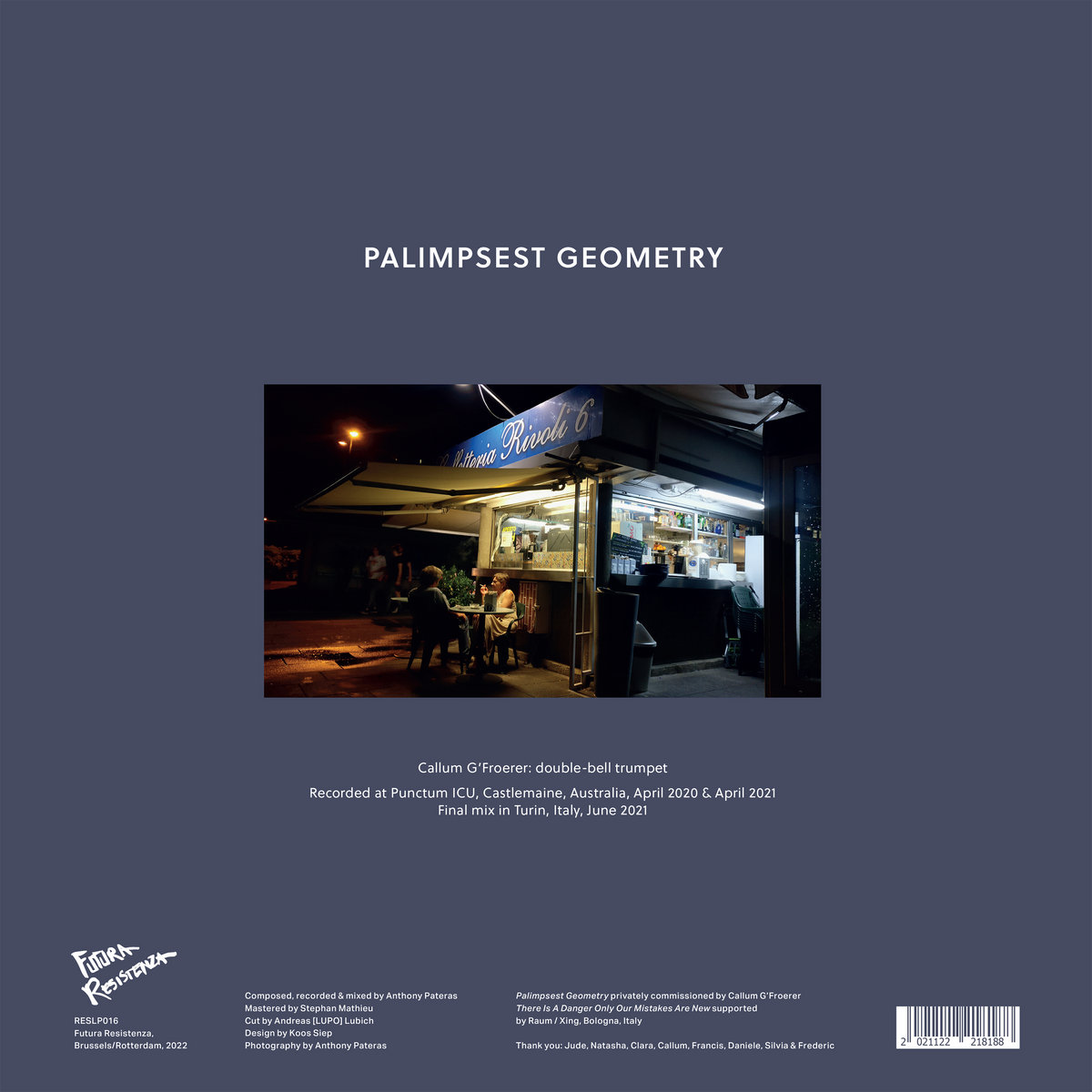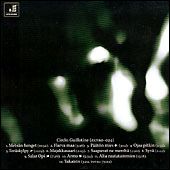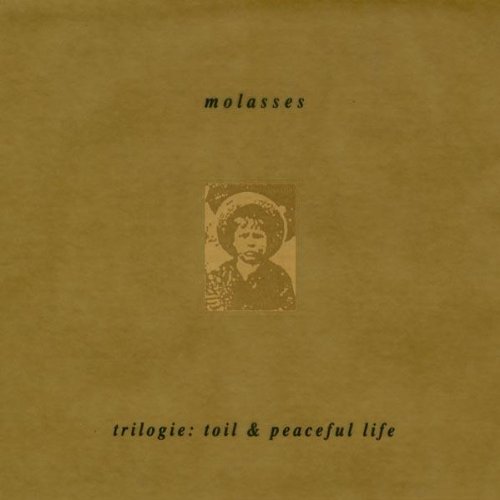Description
Futura Resistenza is pleased to present the latest release from the prolific, restlessly creative composer-performer Anthony Pateras, whose work since the late 1990s in notated composition, free improvisation, solo performances for piano and electronics, and scores of projects with a remarkable array of collaborators ranging from Jérôme Noetinger to Mike Patton have established him as a major voice in contemporary experimental music. Pateras’ music of recent years tracks a steady move away from the radically disjunctive idiom of his early work – described by the composer himself as ‘juxtapositions of blocks with no concern for experiential continuity’ – toward a more patient approach. Where his earlier work often cut between sonic masses with a violence inspired by composers such as Jani Christou and Iannis Xenakis, much of his recent work explores subtle acoustic phenomenon in a calmly unrhetorical fashion, drawing on elements of the work of Maryanne Amacher, Morton Feldman, and Alvin Lucier.
This direction in Pateras’ work is most elegantly displayed in the major series of works for instrumental soloist and tape he has completed over the last decade, to which the two side-long pieces heard here belong. Often developed in close collaboration with the instrumentalists who first performed them, many of these works pair precisely tuned sets of pitches from the soloist with simple electronic elements sourced from feedback or analogue synthesiser, along with Revox tape manipulations, projecting the solo instrument out of an amorphous sonic backdrop. In these two pieces – one performed by Callum G’Froerer on double-bell trumpet, the other sung by Clara La Licata – electronic sound sources are absent. Rather, the soloist is accompanied by numerous pre-recorded tracks of their own instrument or voice, an acoustic hall of mirrors where the distinction between live performer and recorded accompaniment becomes difficult to perceive.
Each piece immediately establishes the reduced vocabulary that it will insistently probe throughout its duration. Palimpsest Geometry (2020) for double-bell trumpet & tape works with rapidly pulsed single trumpet notes at brisk tempos that often hover at the perceptual threshold between rhythm and a kind of tremolo. The interaction between different rates of pulse produces skittering echoes, as if G’Froerer’s layers of trumpets were really a single sound bouncing around the sonic space. In pitch, the piece at times uses a restrained variant of the fanning technique found in the works of Györgi Ligeti, where the various voices individually move away from an initial unison. But where Ligeti’s use of this technique is often dramatic, here it is fluid, almost searching, a constant movement in stillness like ripples on the surface of water.
There Is A Danger Only Our Mistakes Are New (2021) for voice & tape goes to work on a see-sawing two-note melodic cell, insistently transposed and transposed again, hummed or sung with open vowels, contracting to a semitone and expanding to a minor third. The purity of La Licata’s tone and the consistent worrying at close intervals unavoidably call up Feldman’s Three Voices, but the effect of Pateras’ piece is far less austere. The music is suffused with a hazy dreaminess, as if a fragment of one of Ravel’s Mallarmé songs has floated away and spawned countless flickering reflections of itself. But more than anything in the canon of Western art music, the piece calls up the criss-crossing repeated figures of Inuit vocal games or the interlocking repetitions of Banda-Linda music, where rhythmic and harmonic displacements of repeated motifs fuse together individual parts into the illusion of an impossibly rich and multi-faceted unitary sonic organism.
Essentially homogeneous in texture yet built up from constantly changing details, broadly static yet always moving and shifting, these pieces exemplify Pateras’ recent work while also pushing it into a new, strikingly immediate direction. Here, form grows organically out of the material itself; the results are sparkling, immersive, and quietly uncompromising.
– Francis Plagne




